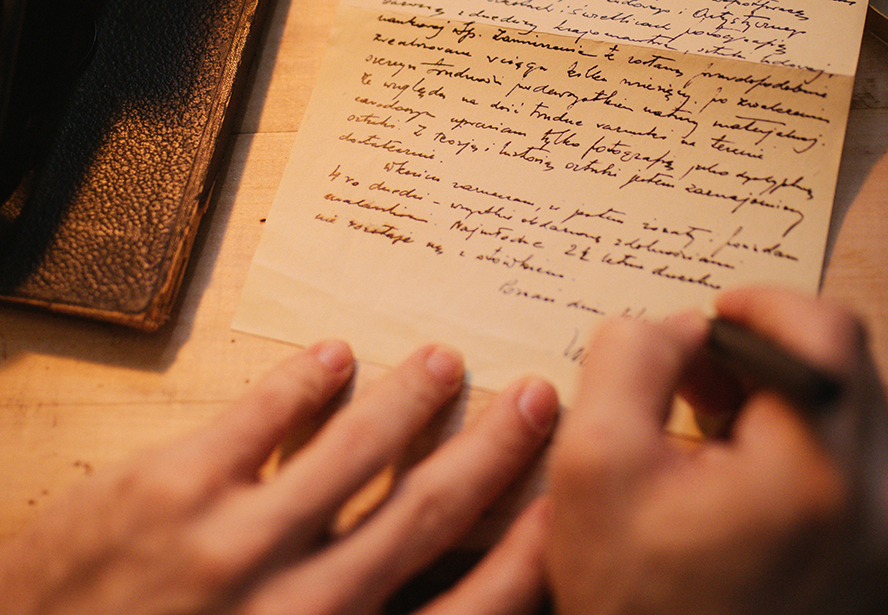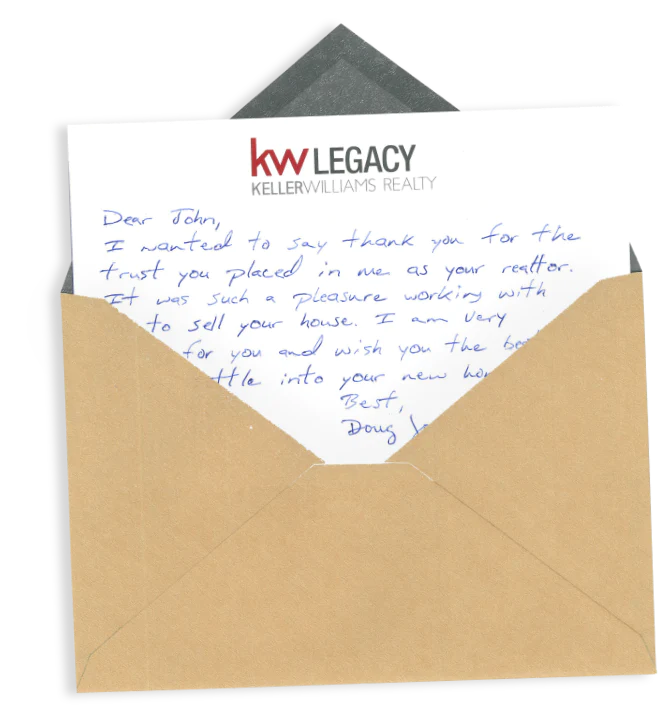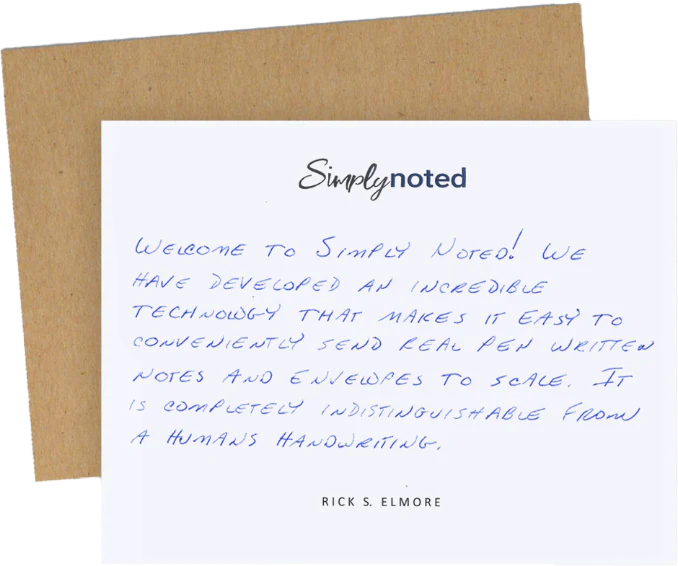How to Use Gift Letters for Your Mortage | Ultimate Guide and Service

At Simply Noted, we know letters. Our state-of-the-art handwriting machines pen thousands of them a day. But gift letters are a very different sort of beast. We call them “letters,” but they don’t have to conform to a letter style, and they’re more legal document than traditional communication. But we still know a lot about them!
In a recent post, we discussed mortgage gift letter basics and provided a few templates you can use to create your own gift letters. They’re yours as-is or adapted to your purposes. Remember that the exact format is unimportant as long as you include all of the information required.
In this article, we’ll discuss what’s required in more depth, look at how to use these letters, and what they mean for the mortgage process. But first, let’s refresh our memory on their purpose.
SEE ALSO: 10 Thank You Letter Templates for Real Estate Agents
WHY DO LENDERS NEED GIFT LETTERS?
Buying a home is an expensive process. Mortgages cover the lion’s share of the purchase price, taxes, and fees, but there are also significant out-of-pocket costs — namely the down payment. Depending on your lender’s and loan’s requirements, the down payment can be up to 20%. This often amounts to tens of thousands of dollars.
If the buyer doesn’t have access to the necessary funds, regulations allow other parties to contribute. However, these external sources can’t make a loan. Loans require repayment, which adds to the buyer’s debt load, throwing off their debt-to-income ratios, possibly precluding them from successfully executing the loan.
As a result, lenders require proof that any contributed funds are a gift that never requires repayment. A gift letter provides this proof, as well as legal recourse if the gifted funds do interfere with mortgage repayment.
If you’re buying a house with gifted funds, you must submit a gift letter from the parties offering the money, or else you won’t be able to apply the cash to your down payment.
SEE ALSO: 10 Incredible Advertising Ideas for Mortgage Lead Generation

WHAT INFORMATION MUST BE INCLUDED IN A GIFT LETTER?
As long as you include the following information in your gift letter, it should be acceptable. How you structure it is up to you. Your lender will be looking for:
- The borrower’s name
- The donor’s name, address, and other contact information
- The donor’s relationship to the buyer
- The gift amount
- The date of transfer
- The property address being purchased
- A signed statement attesting the donation is a gift and that no repayment, in any form, is expected.
WHAT KINDS OF PROPERTY CAN BE PURCHASED WITH GIFTED FUNDS?
Gift funds can be used to purchase any home you’ll be living in, either full or part-time. Let’s look at what that means for various types of purchases.
SEE ALSO: 3 Potent Examples of a Real Estate Letter to Potential Sellers
Primary Residence - Single-Family Home
You can use gifted funds to purchase your primary residence. Assuming it’s a single-family home, there are no rules regarding how much can be applied to your down payment. You can make your down payment entirely with gifted funds, contributing none of your own money, regardless of the down payment amount.
Primary Residence - Multi-Family Home
You can use gifted funds to purchase multi-family units, too, as long as you’ll be residing in the property, subject to specific guidelines.
- If your down payment amount is 20% or higher (you can put as much down as you like), you aren’t required to use any of your own funds.
- For down payments less than 20%, you’ll need to put up at least 5% out of your pocket. The rest can be gifted.
Secondary Homes
Maybe you’re a retired snowbird that likes to move south for the winter, or you want a vacation home elsewhere in the country. Gift funds can be used to purchase a second home as well, assuming the following.
- You’re getting a conventional loan. Gift funds can’t be used with FHA, VA, or USDA loans.
- Like a multi-family property, you aren’t required to use any of your own funds if your down payment is greater than 20%.
- Your own funds must constitute 5% for down payments less than 20%.
Investment Properties
If you remember our rule of thumb from earlier, gift funds can only be used when the buyer will be living in the property. For this reason, investment properties cannot use gifted funds. Buyers must come up with the full down payment using their own money.
SEE ALSO: Real Estate Marketing Tips in 2021

WHO IS ALLOWED TO MAKE GIFT FUNDS AVAILABLE?
There are guidelines regarding who is allowed to make gift funds available. These vary depending on the type of loan.
Conventional
Donors must be family to qualify under conventional loans. “Family” here is defined as blood, marriage, partnerships, fiancés, or adoption. Beyond that constraint, any legitimate connection is viable.
FHA
FHA loans widen the field. Oddly, they don’t include cousins, nephews, and nieces as family but they do allow gifts from close friends. If your close friend happens to be your cousin, then everything’s fine. Of course, the friend clause opens the door to nearly anyone.
Under an FHA loan, your employer is also allowed to contribute, as well as charitable organizations and labor unions.
VA and USDA
These two loan types throw the doors open. Any relationship at all qualifies under their widely permissive guidelines. However, if your donor has any kind of interest in the property, they could be denied. To prevent conflicts of interest, interested parties — those with a financial stake in the sale of the property, like real estate agents are barred from donating funds.
SEE ALSO: Why Your Real Estate Marketing Plan Should Include Handwritten Cards

HOW DOES A BUYER USE A GIFT LETTER?
Using a gift letter couldn’t be simpler. Have the person providing the money complete the letter, sign it, and send it to you. There are plenty of free templates online(or you can use the ones we provided.) Once you have the gift letter in hand, forward it to your lender.
Depending on their process, you may have to provide external documentation as well. This documentation might include:
- A copy of the buyer’s deposit slip and their check
- A copy of the check submitted to the title agent
- Relevant bank statements
- Wire transfer proof
- The settlement sheet showing the gift deposit
You’ll need to provide the gift letter and any other required documentation before your settlement date. Once your lender is satisfied, you’re done!























